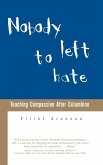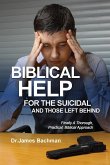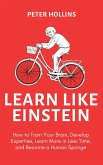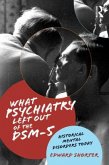A stellar group of authors from across disciplines explains the alarming increase in the use of psychotropic medications, questions the causes, and presents disturbing thoughts regarding this phenomenon and the risks it creates for children. They take an in-depth look at the conditions that have led to drugging our children, and stress how emotional, social, cultural, and physical environments can both damage and heal young minds. And they challenge the model that maintains that psychological disturbance is genetic and thus requires medication. This is riveting reading for all who care about the youngest members of society. Over the past 15 years, there has been a 300 percent increase in the use of psychotropic medications with girls and boys under the age of 20, and prescriptions for preschoolers have skyrocketed. A stellar group of authors from across disciplines explains this increase, questions the causes, and presents disturbing thoughts regarding this phenomenon as they describe the risks it creates for children. While there are certainly extreme cases where drugs are the only option, medication rather than psychotherapy and counseling has become the first choice for treatment rather than a last resort. The experts who joined forces for this book take an in-depth look at the conditions that have led to drugging our children, and stress how emotional, social, cultural, and physical environments can both damage and heal young minds. The so-called medical model, one maintaining that psychological disturbance is genetic and thus requires medication, is challenged in this volume. Contributors range from a pediatrician who has testified before Congress and been featured in a Time magazine cover story, to a top child psychiatrist who is an official for the American Academy of Child and Adolescent Psychiatry, along with a well-known child psychiatrist, psychologists, environmentalists, and a public policy consultant. This is riveting reading for all who care about the youngest members of society. Among other issues, this work looks at controversy over whether psychiatric medications are safe or effective for children-and what little we know about their effect on still-developing brains-as well as the role of corporate interests in the increased use of psychotropics for children. Chapters address the role of environment in both causing and curing disorders more and more often diagnosed in our youngsters: from ADHD, depression, and anxiety to eating disorders. The core questions addressed by this sage group of contributors are these: Why are so many children being diagnosed with psychiatric disturbances and given drugs? Why have drugs become the first treatment of choice to deal with those disorders?
Hinweis: Dieser Artikel kann nur an eine deutsche Lieferadresse ausgeliefert werden.
Hinweis: Dieser Artikel kann nur an eine deutsche Lieferadresse ausgeliefert werden.
Children in America are being given psychotropic medications at an ever-increasing rate, driven by fashionable diagnoses like bipolar disorder. No Child Left Different charts the emergence of this phenomenon, grappling with the issues in a nuanced and constructive way rather than simply expressing horror. But the bottom line is that the book labels what is happening as a folly in the classical meaning of the word-something that was or could have been recognized to be a mistake at the time it was happening. Follies can be amusing and harmless, but this one has the dimensions of a tragedy. -- David Healy, Professor of Psychiatry, Cardiff University, and author of The Antidepressant Era and Let Them Eat Prozac [S]ucceeds admirably in alerting the reader to the problems of psychotropic drugs for children...[t]his book raises many potential ethical issues...[o]pens a much needed conversation about the cultural and ethical implications of medical interventions for normalizing individuals. -- The Hastings Center Report May-June 2007 [T]akes a critical look at the promotion and overuse of pyschoactive drugs in children. -- Easton's Public Library eNewsletter August 2006 A group of authors from various disciplines explain why there has been a 300-percent increase in the use of psychotropic medications for children under the age of 20 and why prescriptions for preschoolers have skyrocketed. The authors question the causes, describe the risks and discuss how emotional, social, cultural and physical environments can both damage and heal young minds. The book also looks at the controversy of whether psychiatric medications are safe or effective for children and what is known about their effects on brains that are still developing. -- District Administration March 2006 This work raises important issues concerning the deteriorating mental health of American children. Contributors explore the societal and cultural issues related to this emerging phenomenon, as well as some related theories of psychosocial development and genetics. -- Choice November 2006 [T]hose seeking an introduction to alternative ways to view the problems facing Americas children-and progressive solutions to these problems-will appreciate this collection. Editor Sharna Olfman, whose series "Childhood in America" also includes the volumes Childhood Lost: How American Culture is Failing Our Kids and All Work and No Play...:How Educational Reforms Are Harming Our Preschoolers, is to be commended for making this range of views readily accessible. -- Metapsychology June 2007 No Child Left Different takes a critical look at the promotion and overuse of pyschoactive drugs in children. -- The New York Review of Books June 8, 2006 Over the past 15 years, there has been a 300 percent increase in the use of psychotropic medications for children and youth under the age of 20. This volume traces the emergence of this phenomenon and critically examines the establishment of drugs as the treatment of choice-rather than last resort-for children and teens diagnosed with mental illnesses. -- SciTech Book News March 2006 An important book raising critical concerns about childhood, drugs, and how unfettered corporate interests combine with the romance of a quick fix to undermine children's health. -- Susan Linn, Ed.D, author of Consuming Kids and Associate Director of the Media Center of Judge Baker Children's Center and Instructor in Psy Sharna Olfman has masterfully edited this extraordinary volume that critically examines our nation's gullible faith in drugs as the treatment of choice for the rising tide of American children and youths diagnosed with mental illness. Through compelling statistics, wide-ranging research evidence, and poignant case examples, a renowned cast of contributing authors expose the clinical, industrial, and social conditions that have led to unwarranted drugging of our children. The chapters offer an incisive reminder that family, community, and societal supports combine with biology and are crucial for the development of every mentally healthy human child. The clarity, passion, and power of the authors' writing strengthen their vital message. A must-read for parents, mental health professionals, and policy-makers, and a forceful call to action. -- Laura E. Berk, distinguished professor of psychology, Illinois State University; author of Awakening Children's Minds This is a must read for anybody interested in the health and welfare of children...In ten compelling, often chilling, articles, helpfully organized and introduced by Dr. Olfman, the various authors, leaders in their respective fields and drawn from a number of disciplines, demonstrate how a medical establishment obsessed with finding genetic causes rountinely obfuscates environmental factors and how a pharmaceutical industry obsessed with profits only sees self-interested opportunity in the suffering of children. -- Joel Bakan, Professor of Law and author of The Corporation








